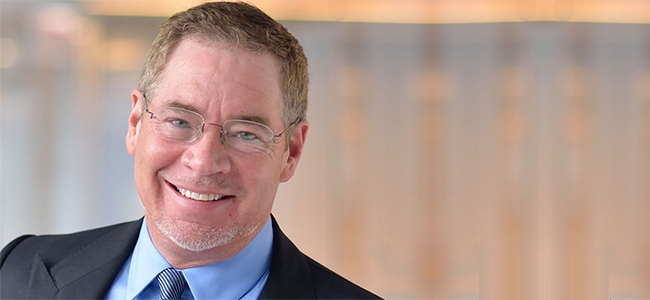
Larry Keeley, president and co-founder of Doblin.
This was discussed on a panel during an executive breakfast at the SingularityU South Africa Summit, which took place in Johannesburg this week.
Firstly, Larry Keeley, president and co-founder of Doblin, an innovation strategy firm in the US, defined innovation as the creation of a new, viable business offering.
However, he said this is the noun form of the world. "What most people fail to ask is the verb form: what is innovating?
"Innovating requires identifying complicated problems that matter, and working through them to find elegant solutions," said Keeley.
"Effective innovators try to produce something different than others, and they pursue it in different ways. Everyone asks how do you define innovation; nearly everyone misses, how do you define innovating? All the insight tends to emerge only when you see both parts of the puzzle."
Stephen van Coller, MTN VP for digital services, data analytics and business development, said innovation in Africa is often about life or death, making it a necessity not an option.
"There is a real corporate responsibility to create sandboxes, or whatever it is, to give entrepreneurs the space to try out their ideas."
Mandy Simpson, Cyber Toa CEO, said while she agreed corporates had a responsibility to help, innovation in Africa will not come from big business, rather from people on the ground.
"Part of what big organisations are doing is innovation, but disruption is not, and they are going to be disrupted themselves."
She said a person in Africa with a smartphone now has more access to information than the US president did just 15 years ago – a phrase that was repeated often throughout the conference by various speakers.
Nicolas Haan, Singularity University chair of global grand challenges, said there will be a complete inversion of how innovation happens. "It will now be circular, and not hierarchical, and we need to get our heads around that."
Simpson said, rather, corporates have a responsibility to support regulation which supports the spread of information.
Adetayo Bamiduro, co-founder and CEO of Metro Africa Xpress in Nigeria, says it is not about the technology in Africa, but rather about access to local funding. He said investors do not have the same risk appetite as investors in the US or Europe.
He noted that red tape from governments is also limiting for local start-ups. "We don't need governments to give us money; we just need them to get out the way."
Keeley said companies often misinterpret what it means to be innovative, and settle for calling themselves the ‘Uber of' whatever industry they are in.
"They set themselves up to fail from the outset by not framing their problems and issues properly in the first place. They make their challenges too simple, and instead should work to make them more thoughtful, nuanced and sophisticated."
He said some of the common mistakes companies make when trying to innovate are: "Pursuing products instead of platforms or ecosystems; and assuming that creativity is key, rather than a discipline."

